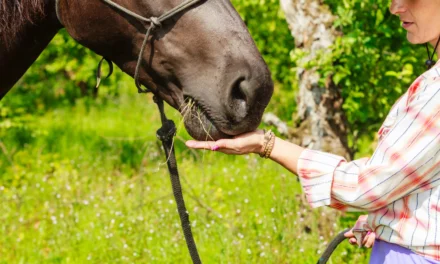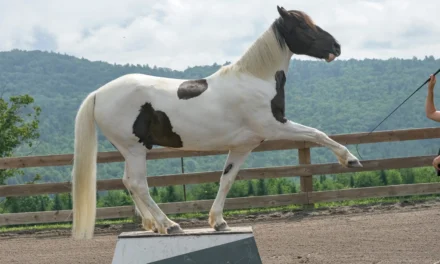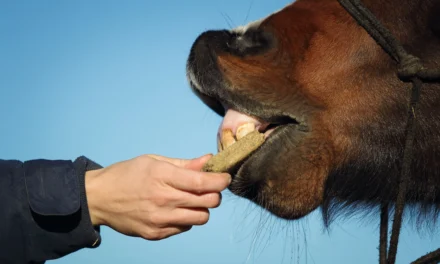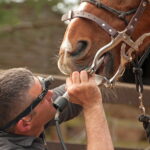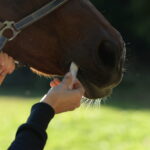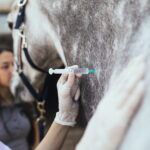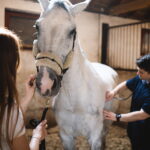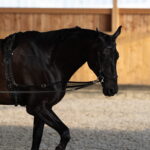Key points at a glance:
- Horses are naturally equipped to learn quickly and effectively
- They live in the here and now, linking only events that occur closely together in time
- Learning takes place primarily through observation, imitation, and direct, hands-on experience
- Experiences are strongly linked to emotions and stored in situational memory
- Horses are constantly learning – even when we don’t intend them to
The extraordinary learning ability of our horses
Anyone who observes horses will quickly notice that they are true masters of learning. This ability developed over the course of evolution, as survival depended on quickly learning from experience. A horse that once had a negative encounter with a predator needed to remember the situation precisely in order to escape in time the next time.
This natural ability to learn is still deeply ingrained in horses today. They are constantly learning whether we intend it or not. Every interaction, situation, and reaction in their environment is noticed and stored by the horse. This makes them attentive and quick to learn, but it also places a great responsibility on us as their partners.
The horse’s brain – unlike ours
In order to understand how horses learn, we first need to understand how they process information. Unlike humans, horses live entirely in the here and now. Their brains are not designed to make complex connections between events separated by long periods of time. What matters is the present moment.
This focus on the present moment makes horses excellent observers of their immediate surroundings. Their brains are specialised to react instantaneously to potential dangers while simultaneously learning from every situation. A well-developed situational and spatial memory plays a key role: horses remember very precisely where they have had positive or negative experiences.
More on this topic: Why horses learn differently to humans – a view into nature
Emotional intelligence and learning
A distinctive feature of how horses learn is the strong link between experiences and emotions. Every learning experience is tied to the emotional state in which it occurs. A horse learning in a relaxed, positive environment will remember the experience differently than one learning under stress or pressure.
This emotional aspect of learning also explains why trustful relationships are so important for successful training. A horse that trusts its human is more receptive to new learning experiences and can handle challenges with greater calm and confidence.
The different ways horses learn
Horses use different ways to learn. One important aspect is social learning through observation and imitation. In the herd, young horses learn from the older ones which behaviours are successful and which are not. We can also make use of this principle in training by using experienced horses as “teachers.”
In addition, horses learn through trial and error, as well as through the immediate consequences of their behaviour. If a behaviour leads to a positive experience, it is likely to be repeated. If it leads to an unpleasant experience, it is more likely to be avoided in the future. This principle forms the basis of many training methods.

© Adobe Stock / Kzenon
Relevance for training
Understanding these learning principles is fundamental for successful training. By knowing how horses learn, we can structure our training accordingly: using clear, timely cues, maintaining a positive environment, and taking into account the emotional needs of our horses.
Timing is especially important: since horses can only link events that occur closely together in time, our response to a behaviour must happen within a few seconds. A delayed reward or correction will no longer be associated with the original behaviour by the horse.
Equally important is consistency. Horses learn through repetition, but these repetitions need to be reliable. Inconsistent signals or varying responses to the same behaviour confuse the horse and hinder the learning process.
- Dental Health in Horses: Silent Prevention in the Mouth - 26. January 2026
- Parasite Prevention in Horses: Why “Preventive” Deworming Doesn’t Work - 26. January 2026
- Vaccination in Horses: A Critical Look at Preventive Care - 26. January 2026


